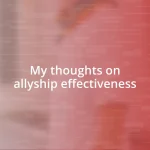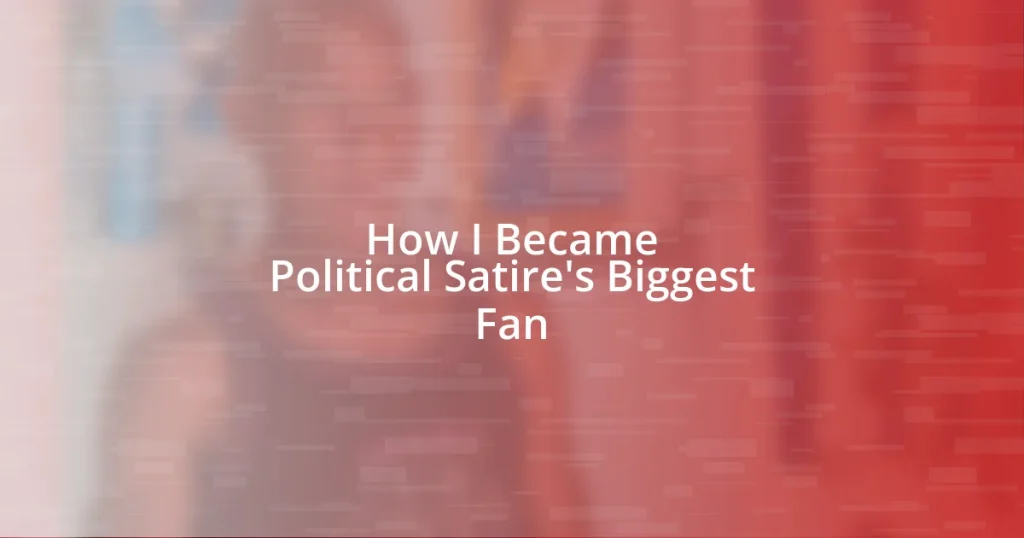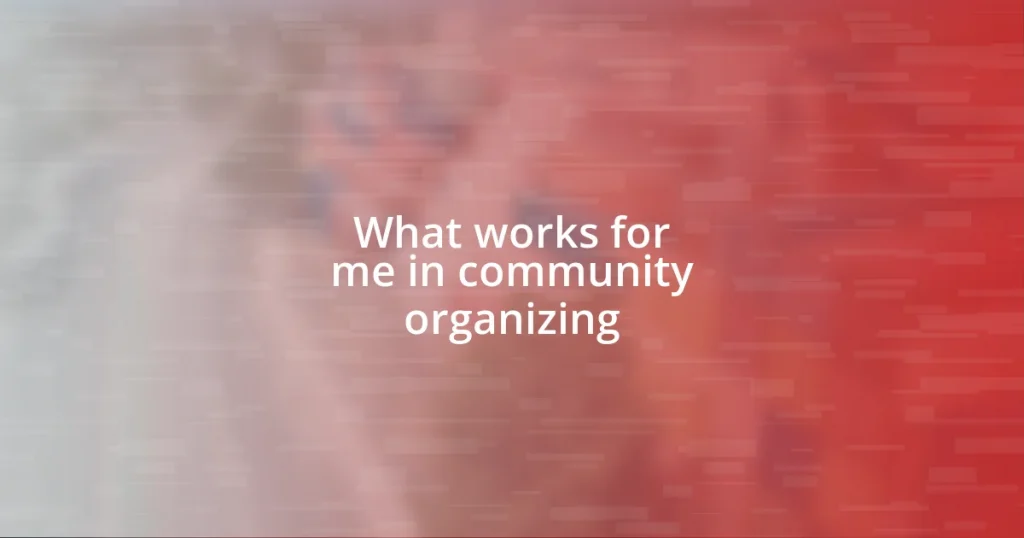Key takeaways:
- The author discovers political satire as an insightful tool that blends humor with critical commentary on current events, deepening their understanding of political complexities.
- Different satirical formats, such as TV shows, social media memes, and podcasts, each play a unique role in engaging audiences and making political discussions more accessible and enjoyable.
- Key figures like Jon Stewart, John Oliver, and Tina Fey illustrate how satire can effectively critique societal issues while fostering conversations that challenge perceptions and inspire reflection.
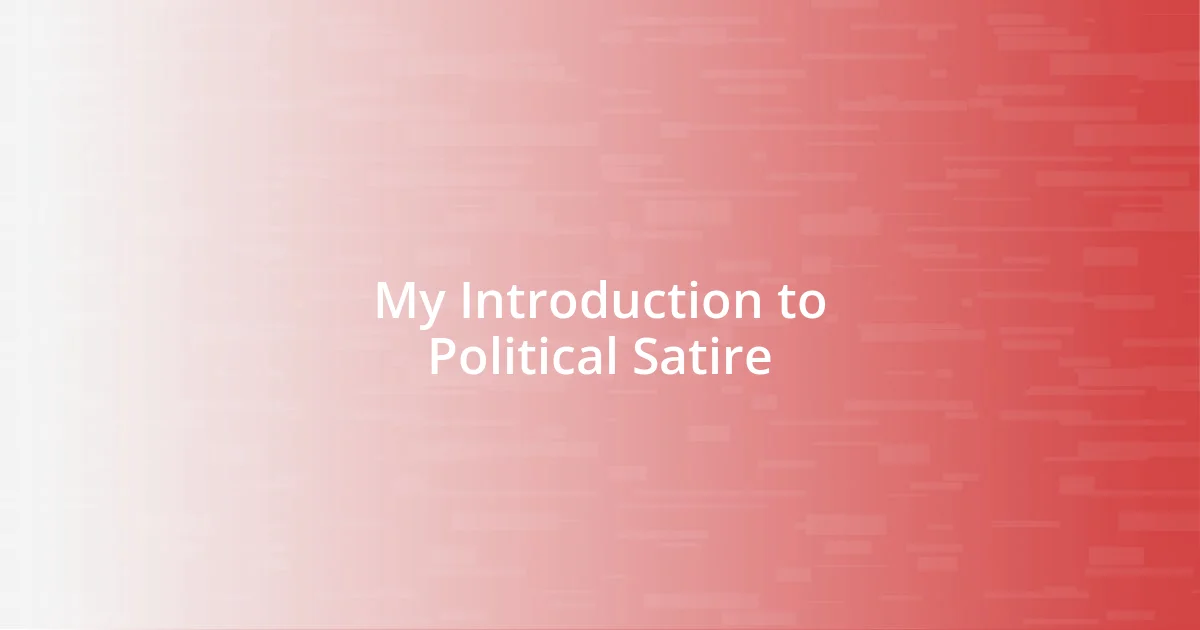
My Introduction to Political Satire
I still remember the first time I stumbled upon a political satire sketch during a late-night TV binge. The sharp wit and clever humor captured my attention, making me reflect on current events in a way I hadn’t before. I found myself laughing out loud, but there was also this nagging question in my mind: Why had I never looked at politics this way?
As I sought out more shows and articles, it felt like each piece of satire opened my eyes to the absurdities within the political landscape. I recall watching a particular segment that hilariously targeted a politician’s outlandish statement. It sparked a mix of amusement and frustration in me, revealing how satire could be both a refuge from the chaos of politics and a sharp critique of it. Isn’t it fascinating how humor can sometimes unearth deeper truths?
Gradually, I realized that political satire was more than just entertainment; it was a tool for understanding the complexities of society. I began to actively seek out the voices that used humor to address serious issues, and it struck me how powerful this form of commentary could be. Have you ever laughed at something only to later realize how profound it actually was? That’s the magic of political satire for me.

Exploring Different Satirical Formats
Political satire comes in various formats, each with its own unique flavor and impact. From late-night talk shows that blend news and comedy, to social media memes that distill politics into digestible snippets, each form serves to capture our attention in different ways. I often find myself scrolling through Twitter, bursting out in laughter at clever memes that highlight political blunders. There’s something about the way a single image accompanied by a witty caption can encapsulate an entire scandal, isn’t there?
Here are some popular satirical formats I’ve come to appreciate:
- TV Shows: Programs like “Saturday Night Live” and “The Daily Show” use sketches and monologues to present commentary on current events.
- Webcomics: Online artists create striking illustrations that bring humor to political issues, making them easily shareable.
- Podcasts: Comedy podcasts offer a deep dive into political topics, blending humor with thoughtful discussion.
- Satirical Articles: Websites like The Onion or The Borowitz Report skew politics through absurd headlines and articles.
- Social Media Memes: Quick, relatable memes on platforms like Instagram and TikTok distill complex ideas into a laugh or two.
Each format resonates differently with me. Some days, I crave the deep analysis of a podcast, while others call for the instant gratification of a meme. It’s a delightful mix that keeps me engaged in the political dialogue while enjoying a good laugh along the way.

Key Figures in Political Satire
Political satire has been shaped and enriched by numerous key figures who have masterfully wielded humor to critique societal issues. Personally, I find it incredible how someone like Jon Stewart transformed “The Daily Show” into a platform for not just comedy, but for political discourse. His blend of satire and serious commentary made audiences re-evaluate the news we consume. Isn’t it interesting how these influential voices can shift our perspective on what we consider important?
Another prominent figure is John Oliver, whose “Last Week Tonight” presents a unique brand of satire that pulls apart complex topics with wit and clarity. I remember watching an episode where he tackled a convoluted issue, and I was amazed at how he mixed humor with real facts, making the topic accessible. It made me think: what if every news segment could be this enlightening while being entertaining?
Then there’s Tina Fey, who, through her iconic portrayal of Sarah Palin on “Saturday Night Live,” demonstrated how a clever impersonation could not only bring laughs but also critique political figures sharply. I recall laughing uncontrollably at her exaggerated gestures, but it also led me to question the implications of the policies she represented. This dual impact of humor never ceases to boggle my mind.
| Figure | Contribution |
|---|---|
| Jon Stewart | Transformed ‘The Daily Show’ into a platform for political discourse. |
| John Oliver | Mixed humor with facts on ‘Last Week Tonight’, making complex topics accessible. |
| Tina Fey | Used impersonation to critique political figures while providing humor. |

Understanding Satire’s Cultural Role
Satire plays a significant role in shaping cultural narratives, often reflecting and critiquing the world around us. I remember the first time I watched a poignant sketch that nailed the absurdity of a political debate. It made me realize how humor can illuminate flaws in our systems and challenge authority while still allowing us to laugh. Isn’t it fascinating how satire can serve as a social mirror, showing us not just what we are, but what we could aspire to be instead?
Beyond mere entertainment, satire creates a sense of community among its audience. I often find myself discussing the latest satirical takes with friends, venturing into conversations that dissect political issues. This shared experience fosters a collective consciousness; when we laugh together, we are also acknowledging the seriousness of the topics at hand. It’s as if the humor draws us closer, making heavy discussions more palatable and engaging. Have you ever noticed how a good laugh can break the ice on a daunting subject?
Moreover, satire encourages critical thinking and skepticism. I’ve had moments where a clever quip got me questioning information I previously accepted at face value, prompting me to dig deeper. The realization that not everything presented to us is straightforward is liberating. By challenging our perspectives, satire not only entertains but also empowers us to become more informed citizens. In what ways do you think satire can inspire change in our political landscape? I genuinely believe it cultivates the curiosity needed to explore the nuances of the issues we face today.
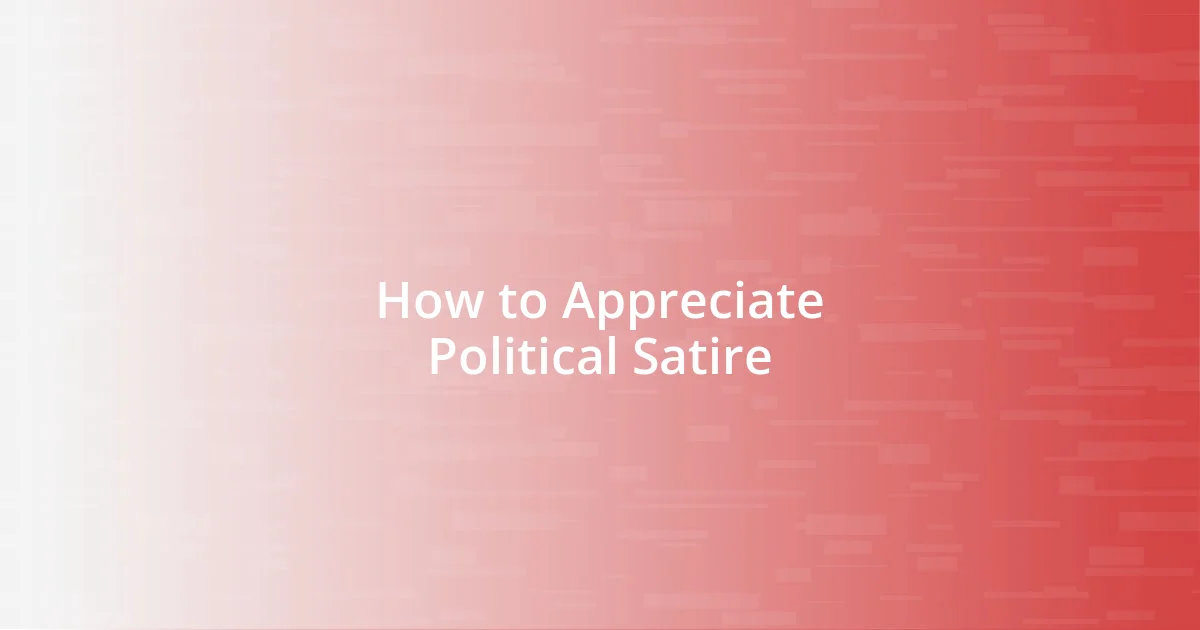
How to Appreciate Political Satire
To truly appreciate political satire, it’s essential to actively engage with the context in which it’s presented. I often find that before diving into a satirical piece, understanding the political climate and key players helps in grasping the underlying jokes. For instance, I once watched a skit that tackled a specific immigration policy, and the humor hit home only because I had followed the news leading up to it. It sparked a conversation with my friends, where we could unpack the layers of the satire together.
Another aspect that enhances appreciation is recognizing the craft behind the humor. I remember the first time I tried my hand at writing a satirical piece. It dawned on me just how much thought goes into each punchline and caricature. When tuning into shows like “Saturday Night Live,” I now admire the writers’ ability to play with words and timing, transforming current events into relatable sketches. Have you ever paused after a punchline to think, “Wow, they really nailed that!”? It’s fascinating to see how effective satire can be when skillfully executed.
Finally, embracing satire as a tool for dialogue can deepen your appreciation. I love sharing clips from my favorite satirical shows with family members who might not typically engage with political content. Watching their reactions is a joy in itself. Satire opens doors for discussions that might feel too heavy when approached directly, allowing us to laugh while also dissecting important issues. What better way to challenge one’s thoughts than through humor, right? It’s all about viewing satire not just as entertainment but as a catalyst for reflection and dialogue.
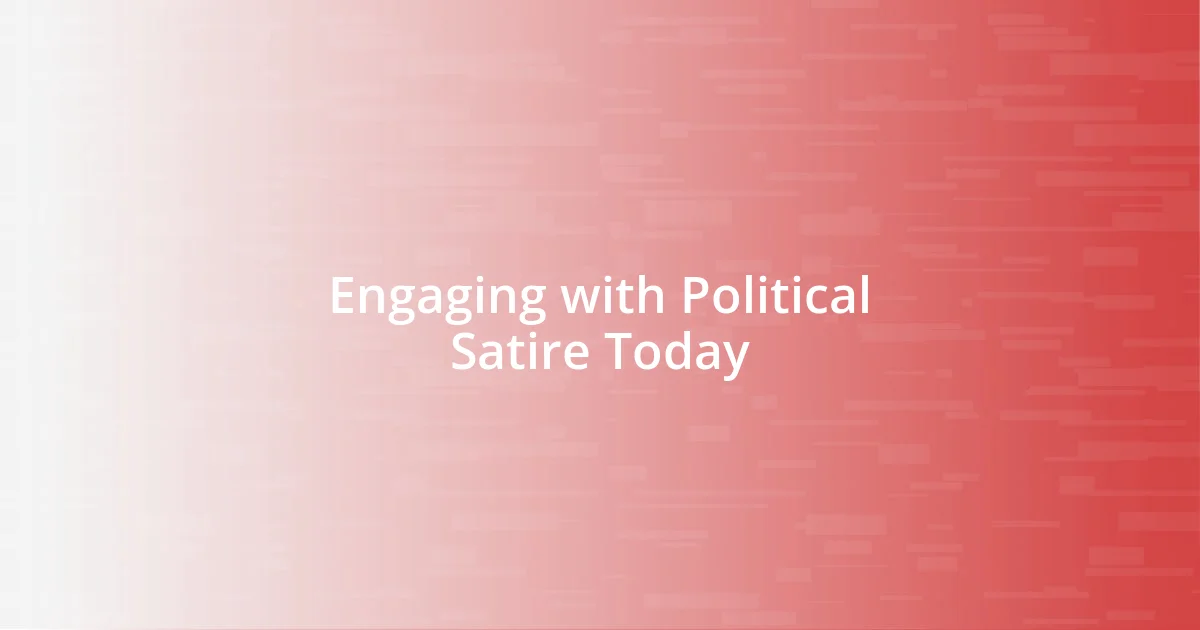
Engaging with Political Satire Today
I’ve found that engaging with political satire today often feels like being part of an exclusive club where laughter becomes a bond. Just the other day, I shared a hilarious clip from a late-night show with my brother, and we ended up in a deep dive about the political implications of the jokes. That experience reminded me how satire can create a space for both humor and serious reflection, making even the weightiest issues seem approachable. Have you felt that spark of connection when laughing at something that hits too close to home?
With the rise of social media, platforms like Twitter and TikTok have completely transformed how we interact with political satire. I still remember when a viral satire video about a recent election left me both laughing and shaking my head in disbelief. The immediacy of these platforms means that satire is no longer confined to television; it’s a vibrant conversation happening in real-time. Isn’t it interesting how quickly a clever joke can ignite discussion and debate among friends and strangers alike?
Moreover, humor is subjective, and what resonates with one person might miss the mark for another. I often find myself engaging with a variety of satirical content – from literature to podcasts – and each brings a unique perspective. I genuinely respect those creators who balance provocation with humor, pushing us to reconsider our beliefs while making us chuckle. Have you ever felt challenged by a satirical piece that made you rethink your position? It’s a thrilling way to engage with the world, don’t you think?







